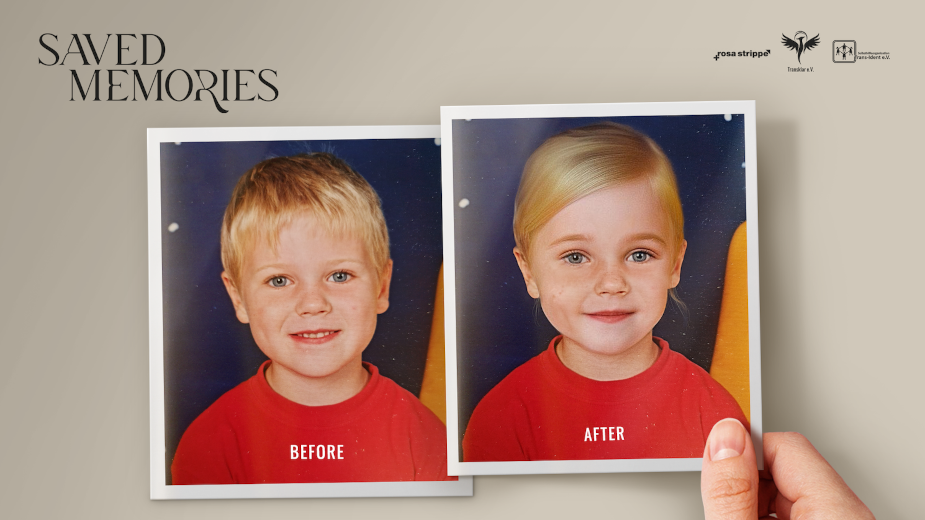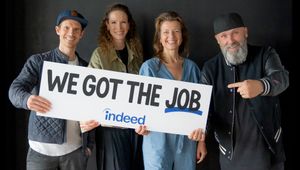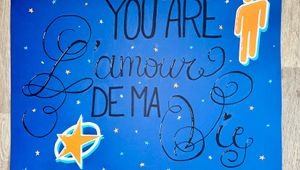
'Saved Memories' Uses AI to Reimagine Childhood Photographs of Trans People

According to estimates by dgti, around half a million people in Germany do not identify with the gender assigned at birth. Many report not wanting to look at or share their childhood photos after a successful transition. This may be because these photos strongly contradict their gender identity and may remind them of the challenges of life pre-transition. The Project “Saved Memories” aims to help trans people be more comfortable with their childhood pictures.
The short film about the project tells the story of the first participants: social media influencer Duke Duong, cabaret artist Alice Dee and model and TV personality Lucy Hellenbrecht. In the film, we hear their personal insights about growing up as a trans person and for the first time sharing their childhood photos with the world- to be transformed by AI.
The film premiered on May 17th, International Day Against Homophobia, Biphobia, Intersex Discrimination and Transphobia, on YouTube and on the project website www.saved-memories.org. The website also features online tutorials and links to tools that trans people can use to transform their own images using AI.
In total, the film and project have reached around 165 million contacts so far. Important German media outlets such as Stern, Gala, Focus, RTL News, as well as LGBTQIA+ titles such as Schwulissimo and queer.de picked up the story, bringing public attention to the message that everyone has the right to be seen as who they truly are.
Myles Lord, creative managing partner, Serviceplan Berlin explains, "You do not often get to work on a project that is so technical – but has such an emotional impact. In the end, we discovered that many trans people could really benefit from this idea by giving back a part of their lives that was always missing. Working with Lucy, Duke, and Alice was truly inspiring – their intimate and personal testimonies give us essential insights into what it means to grow up trans and how society can be more understanding and supportive of the trans community."
"The goal is not to change the past or correct mistakes," adds Patricia Schüttler of Trans-Ident e.V. "Rather, the goal is to align these images with the person's true identity – so that the outside reflects what is felt inside." Marlon Stiller of Transklar e.V. expands: "Not everyone has the opportunity to express their own identity as a child. By bringing gender characteristics closer to the felt reality, viewers can block out painful details and focus on the beautiful memories they had almost forgotten.” “We support this project because, for a part of the trans community, it makes an important chapter of identity easier," adds Andrea Westhoff from Rosa Strippe e.V..
The transformation of the photos was made possible by the latest generation of AI image processing led by AI engineer Jaques Alomo. Each original photo was scanned and used as a master. The AI was then trained with current images of the person. Using the AI program STABLE DIFFUSION, the childhood photos were edited to align with the person's true gender identity. Each moment was carefully recreated to preserve the details that make each memory special.















